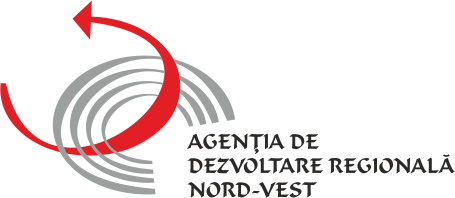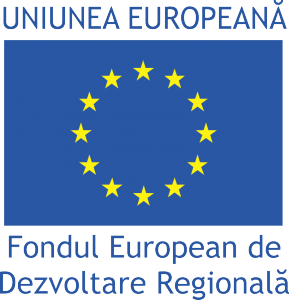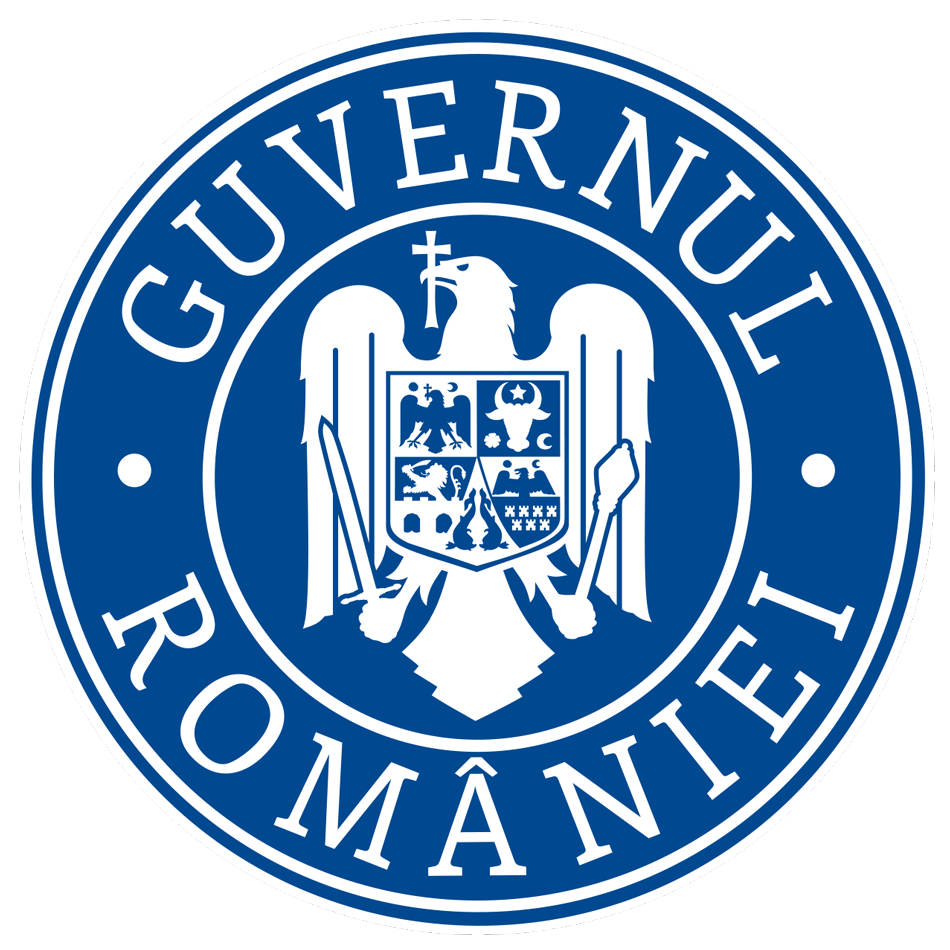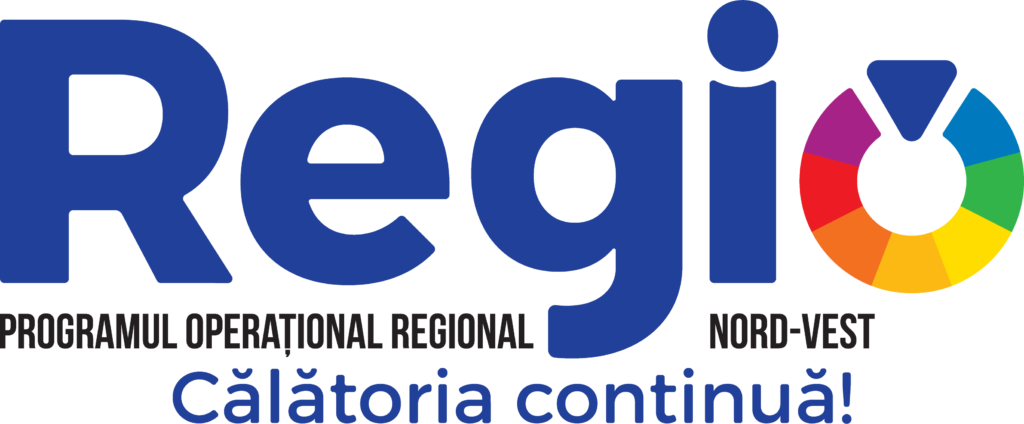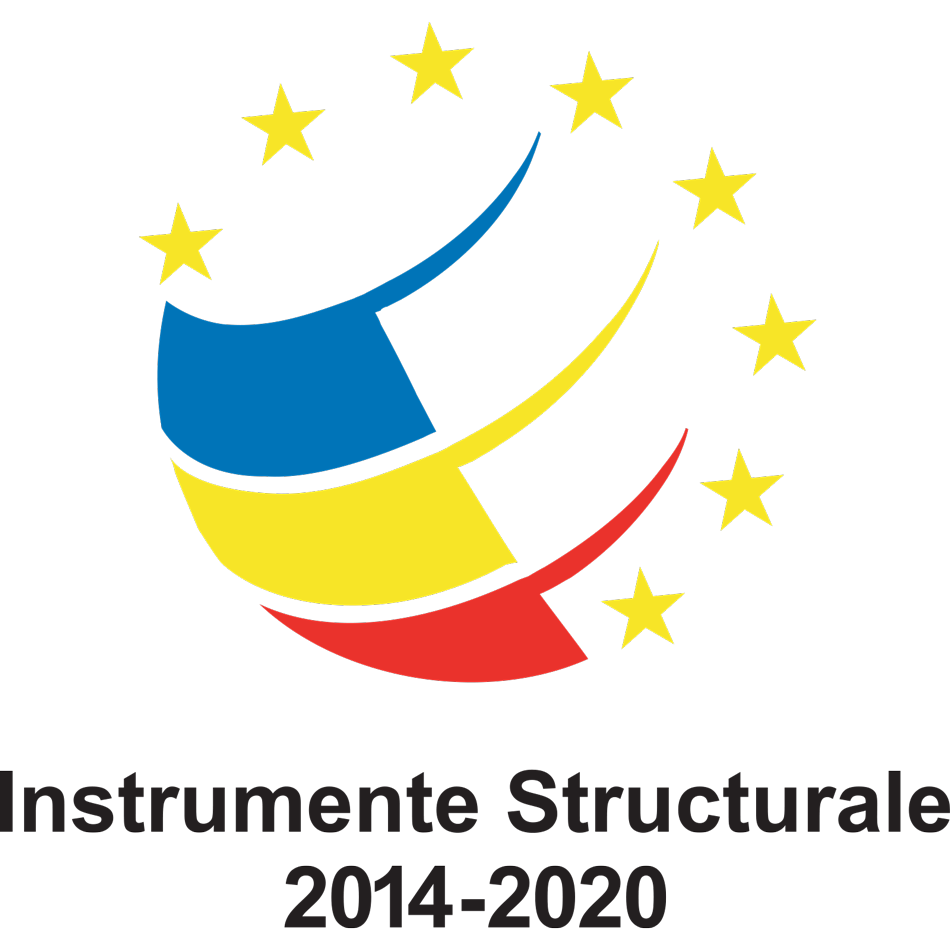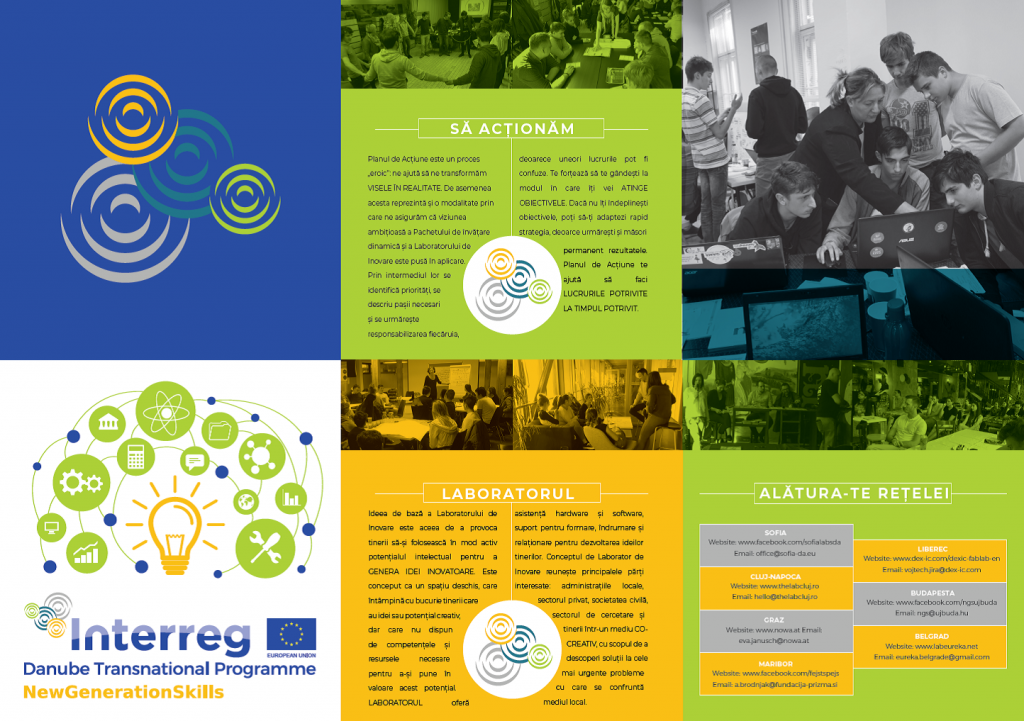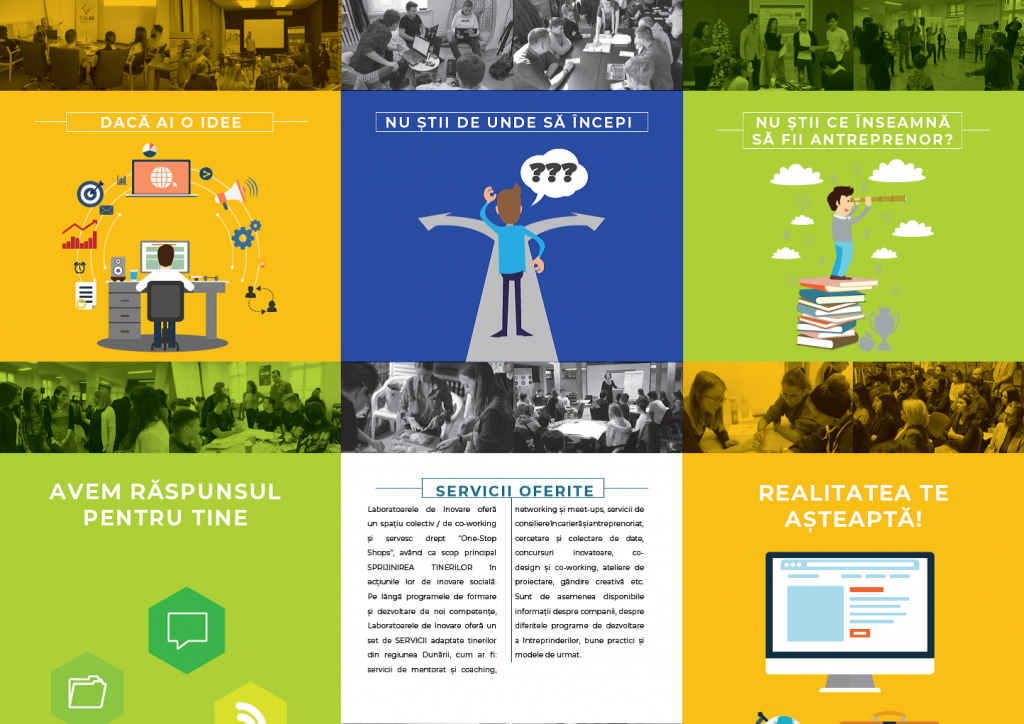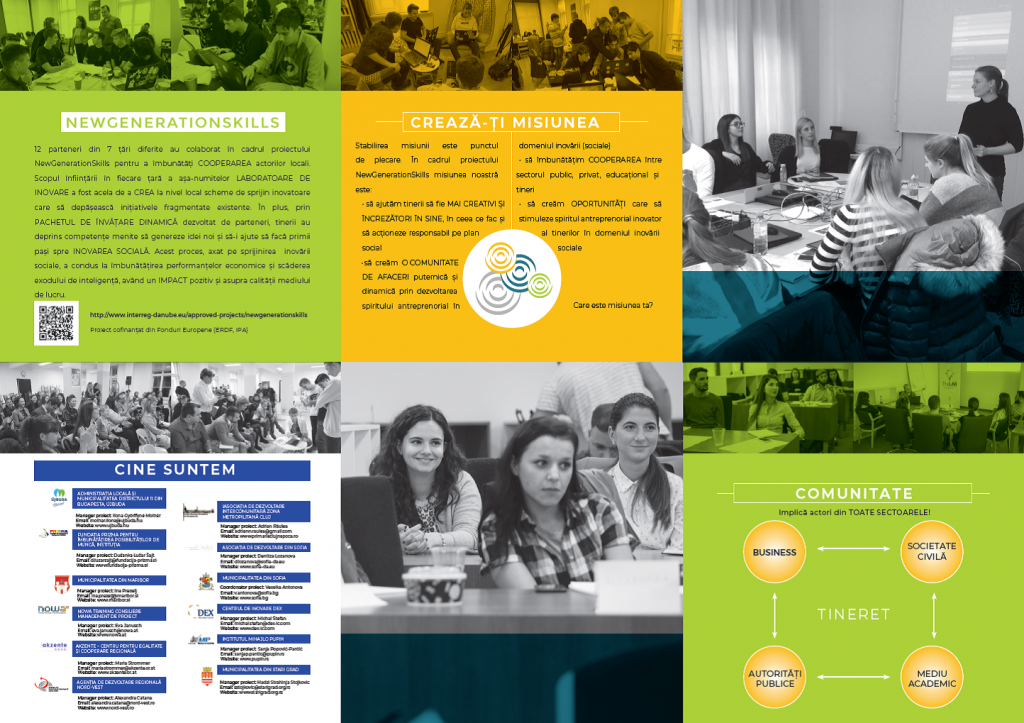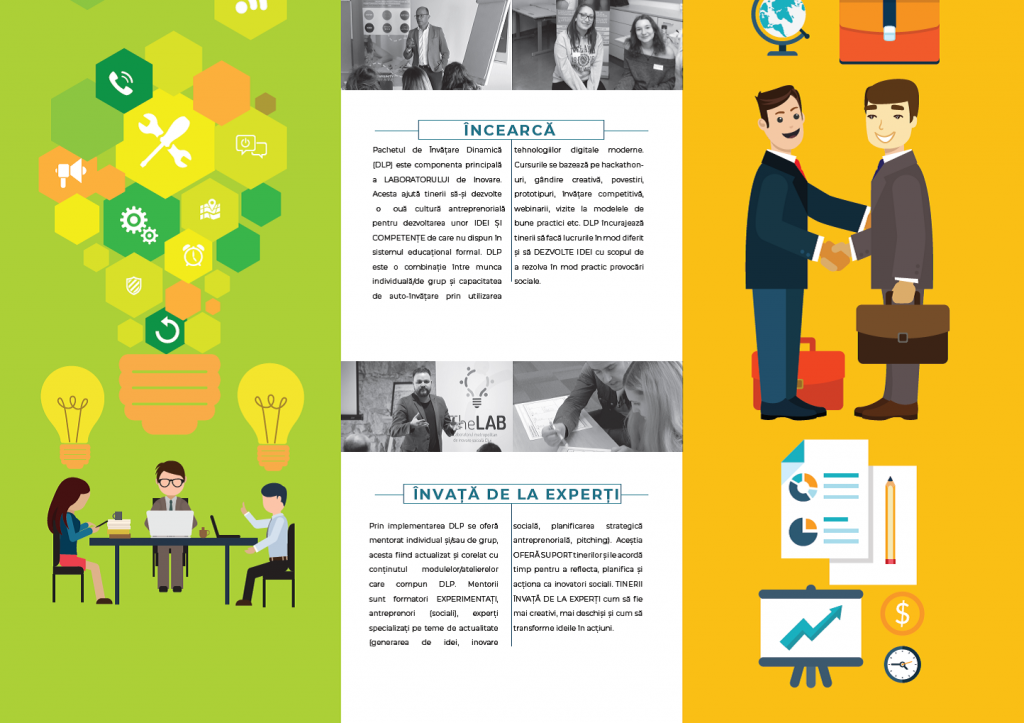
Capitalizing on the potential for business and social innovation in the Danube Region, by equipping young people with new skills (Unlocking the potentials for business and social innovation in the Danube Region by equipping young people with new generation skills)
http://www.interreg-danube.eu/approved-projects/newgenerationskills
The North-West Regional Development Agency implemented between January 2017 and June 2019 the NGS project - NewGenerationSkills - declared the winner in the first call for projects related to the Transnational Program DUNĂREA 2014-2020.
Younger generations have the potential to be proactive drivers of innovation and become filters of change within their local communities. However, 62% among young people in Central and Eastern Europe they are not interested in starting their own business, while one in five would like this, but find it too difficult. This weak entrepreneurial culture and lack of innovation management capabilities is recognized as a key challenge in the Danube area.
So, main objective of the NewGenerationSkills (NGS) project is to create an enabling environment for (social) innovation and entrepreneurship among young people. The responsibility of the authorities in activating social innovation among young people, at the local level, is essential. They can induce change by carefully crafted local policies and they can facilitate the cooperation of different actors, which is necessary to close the gap between the skills acquired within the education system and the requirements of the labor market.
The project aims at the same time to improve the skills of local administrations to support innovation and entrepreneurship, to create local brokerage tools for innovation and entrepreneurship as well as to create a dynamic learning program for motivated young people who need entrepreneurial skills.
The project consortium is made up of 12 partners and 3 partners strategic associates from Hungary, Austria, Bulgaria, the Czech Republic, Romania, Serbia and Slovenia, as follows:
- Budapest District 11 City Hall, Újbuda – Hungary (coordinator)
- PRIZMA, Foundation for Improving Employability - Slovenia
- Maribor City Hall – Slovenia
- NOWA – Training, consultancy and project management NGO – Austria
- Akzente – center for equality and regional cooperation – Austria
- Intercommunity Development Association Cluj Metropolitan Area – Romania
- Development Association Sofia – Bulgaria
- Sofia City Hall – Bulgaria
- DEX Innovation Center – Czech Republic
- North-West Regional Development Agency – Romania
- Mihajlo Pupin Institute – Serbia
- Stari Grad City Hall – Serbia
- Corvinus University – Budapest Small Business Development Center – Hungary (associate partner)
- City Hall of Graz (associate partner)
- Belgrade City Hall (associate partner)

The project has a total budget of over €2.12 million. The Nord-West ADR budget is €120,655, of which €102,557 is non-refundable funding from the European Regional Development Fund.
The project modernized the existing cooperation mechanisms between the target group and the actors of the quadruple helix (which defines future strategies through the interaction of the four main pillars of any wealth creation process: local governments, knowledge institutions, private enterprises and citizens) including local municipalities, as facilitators, together with organizations representing young people, the local education system and the business sector, to create innovative local support systems, overcoming existing fragmented initiatives, of INNOVATION LABORATORIES in a transnational network. The interconnection of innovation and the support of entrepreneurship for young people will contribute to overcoming the gap between the skills acquired in the education system and the new skills required by employers for integration into the labor market.
- The Local Innovation Advisory Group (LIAG) – representative body for the field of sustainable social innovation at the level of the North-West Region
LIAG is the project's local expert advisory group, which serves as a cooperation platform for the region's stakeholders in implementing effective innovation management at the local and regional level. The group consists of 12 volunteer members representing different industry sectors to cover all aspects of the local innovation process. Group members were drawn from four areas: business, education, civil society and public administration (local government).

LIAG's role is to coordinate social innovation processes at the local level. The advisory group provided professional support for two key documents ("Youth Innovation Agenda" and "Local Action Plan") and developed an innovation laboratory model (The LAB). Moreover, LIAG will support the activities that will take place in the future within The LAB.
The administration of the social innovation laboratory (TheLAB) will be provided by the Cluj Metropolitan Area, an association that wants to become, by the end of 2020, a national reference point so much in the field of economic development as well as that of social entrepreneurship among young people, through innovation, digitization, launch and promotion of business initiatives.
To achieve these objectives, the local action plan (LAP – Local Action Plan) aims to:
- To change the paradigm! By developing a knowledge-based entrepreneurial culture and by changing the mindset of young people regarding social entrepreneurship and social innovation.
- To provide capital in order to ensure the support and funding sources necessary for the development of social entrepreneurship projects.
- To strengthen key skills and competencies in the field of social entrepreneurship.

DLP - Dynamic Learning Package (Dynamic Learning Package), is a learning tool composed of modules that aim to develop the skills and competencies needed by young people to start entrepreneurial activities that contribute to social innovation. DLP is part of the services made available to young people within The LAB innovation laboratory, which will be complemented by coaching activities, mentoring, specialized advice and networking facilities.
In these educational programs, young people can learn about the differences between entrepreneurship and social enterprise, how start-ups work and the characteristics of a successful business. In addition, the program helps young people between the ages of 15 and 29 to face the demands of the labor market and the challenges of professional careers, to take the first steps towards the world of social and innovative entrepreneurship. The Dynamic Learning Package includes modules such as: From Problem to Solution, From Idea to Product, Team and Marketing. The Metropolitan Laboratory for Social Innovation The LAB not only develops the learning skills of young people, but also connects them with successful local entrepreneurs who will act as mentors.

The Metropolitan Social Innovation Laboratory, The LAB, from Cluj-Napoca supports young people to learn from the experiences of entrepreneurs and, at the same time, put their own ideas into action. The laboratory organizes meetings with entrepreneurs of successful companies; provides information on existing programs for business development; gets involved so that innovative ideas and companies/public administration find each other; advises on marketing rules and regulations regarding intellectual property rights; organize networking events with innovation stakeholders both locally and internationally. So far, 8 training modules and a pitching session in the laboratory have been organized under the motto "How to build an innovative team and how to develop an idea into a sustainable business model?". The focus was on sales and marketing topics, and the young participants had the chance to present their own business plans in the pitching session. The young people with the five best business plans participated in the International Youth Camp in Belgrade in June 2018.

Also, on the occasion of the organization of the final event in Budapest on June 3-4, 2019, a startup competition was launched in which young people from the Danube region participated. The teams represented Austria, Bulgaria, Czech Republic, Romania, Slovenia, Serbia and Hungary. The 12 teams made their startup ideas known through 5-minute presentations. In order to select the winner in the most fair way, the jury asked some questions to find out more details about each idea presented and how it will be implemented.

From the 12 teams, the best 4 teams were chosen and awarded:
| First place | Second place | Third place | Audience Winner |
| HomeFencing Hungary | Local A Box Serbia | YIA Austria | Cluj Team Romania |
| The team wants to develop an app for professional and amateur swordsmen. It's a wireless solution for keeping score. | The team wants to develop an app to create local communities where everyone is welcome and where everyone can experience something new, where they can promote their talents and where they can spend the day learning and socializing with others. | The team with the youngest entrepreneurs has developed a GIPS technology that places a chip under the skin that helps elderly people check their blood pressure. The team also wants to launch an eco-friendly food packaging start-up "Veggie". | The team wants to develop a system in areas of office buildings where employees can find relaxation and anti-stress activities before, after or during their working days. |
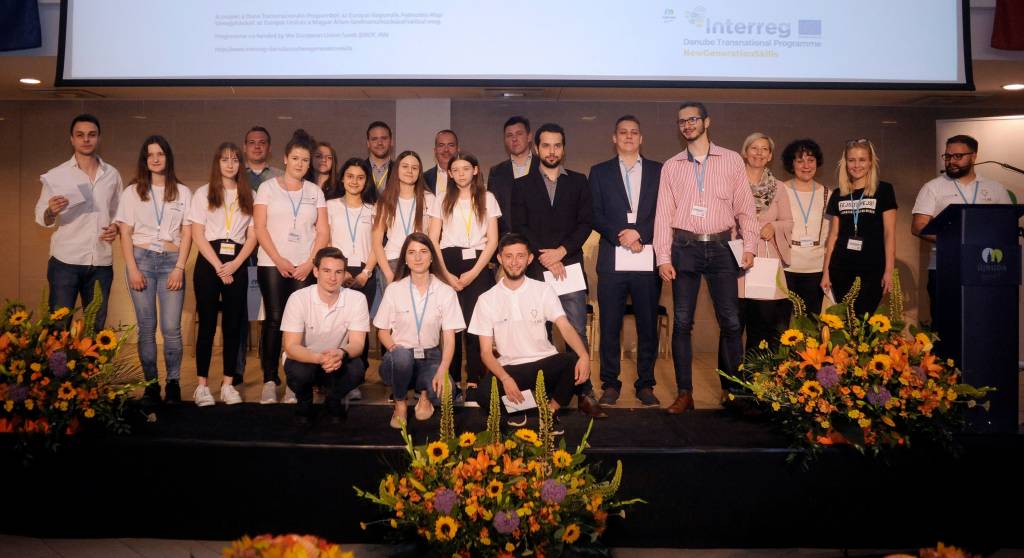
In addition to the results mentioned above, with the completion of the project, the first transnational network of social innovation laboratories in the Danube region was also established, whose contact details you can find next to it.
Members of this network commit to:
- maintain a good collaboration with the partners involved in the project in order to exchange experiences to improve the management of social innovation laboratories;
- participate in the expansion of the transnational network by inviting new partners and cities from the Danube region to develop such laboratories in turn, with the help of the results of this project.
The NewGenerationSkills project has come to an end, but the development and support of young entrepreneurs will not stop in any of the participating countries. Municipalities and partners will continue at local level to help young people develop their creative ideas. Now the teams, benefiting from the knowledge accumulated throughout the project, have the chance to turn their plans into reality. In the Innovation Labs and creative spaces built within the project, we will continue to welcome new generations of young enthusiasts, interested in starting their own business.
With the completion of the NewGenerationSkills project, we are proud to announce the production of a film about the project presenting its main idea and a Brochure.
